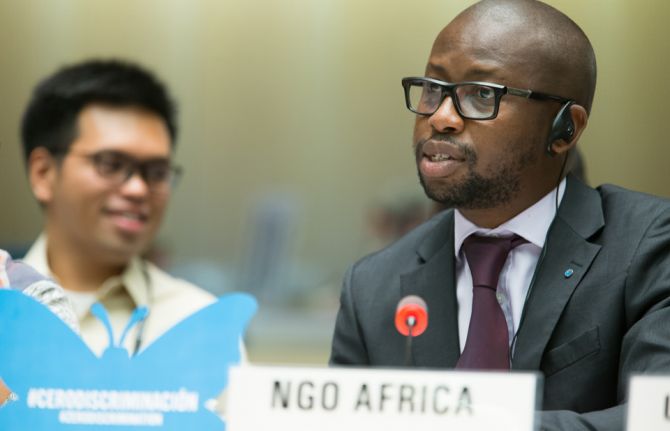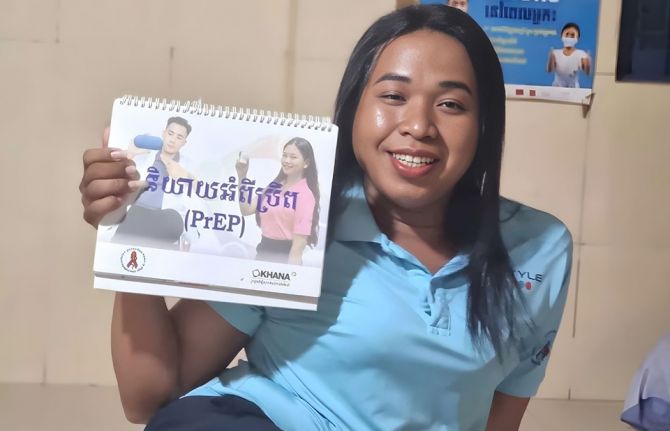

Update
Human rights defenders play a key role in the HIV response
27 September 2017
27 September 2017 27 September 2017While running a legal clinic for refugees 10 years ago, Kene Esom, former Director of African Men for Sexual Health and Rights (AMSHeR), saw how difficult it was for marginalized or vulnerable people to access health-care services. “That is where I realized that as a lawyer and a human rights defender, I could play a role in increasing access to health-care services and defending human rights.” In his more recent role as Strategic Initiatives Adviser to the AMSHeR Board, he is still at the forefront against discrimination, especially discrimination against gay men and other men who have sex with men in Africa.
Mr Esom makes it clear that when he is talking about human rights in the context of HIV, it is not just the right to health that matters. “There is a pattern of human rights violations towards gay men in many countries, owing particularly to the criminalization of consensual same-sex conduct,” said Mr Esom. “For example, when a newspaper decided to publish a sensational story about gay men having a party, the men were arrested. detained and forcibly tested for HIV. All their due process rights were violated and their right to privacy breached to the extent that their names, addresses and pictures were published in the newspaper.”
Mr Esom said that incidents such as this can roll back years of progress in providing HIV services for key populations. “You cannot provide health services without taking into consideration the human rights context of the populations you are providing the services for. You can build the best health-care facility, but gay men will not come to that facility if they are worried that police will arrest them or that doctors will report their sexual behavior.”
Globally, gay men and other men who have sex with men are 24 times more likely to acquire HIV than adults in the general population. Stigma, discrimination, violence and the criminalization of same-sex sexual practices make it more difficult for these men to access HIV prevention, testing and treatment services.
AMSHeR supports human rights organizations to undertake evidence-informed advocacy. “Human rights defenders play a key role in bringing these issues to light and showing the impact that human rights violations can have on HIV responses, especially on services targeting key populations,” said Mr Esom.
Although there is still a lot of silence around issues surrounding sexuality, sexual orientation and gender identity, there is hope. “When I started this work six years ago it was a completely different context. There were very few people who wanted to advocate on these issues. Now, we have a greater pool of people in countries all over Africa and the world, and the communities are standing up for their rights and demanding access to services and a rights-based approach to service delivery.”
In its work, AMSHeR emphasizes the role of communities in advocating for change and speaking directly to policy-makers. “They are the voices and faces of the issues that affect them.”
The right to come together is key. “Many gay men think they are alone. Isolation increases their vulnerability. Bringing people together to discuss their issues creates a community that is empowered to speak up. If that space is not there, engaging policy-makers and service providers becomes more challenging.”
Mr Esom will be speaking about the promotion and protection of human rights in the context of HIV and other communicable disease at the Human Rights Council Social Forum, which is being held from 2 to 4 October. To hear more from Mr Esom and other human rights activists, register to participate at the Human Rights Council Social Forum at https://reg.unog.ch/event/6958/.



